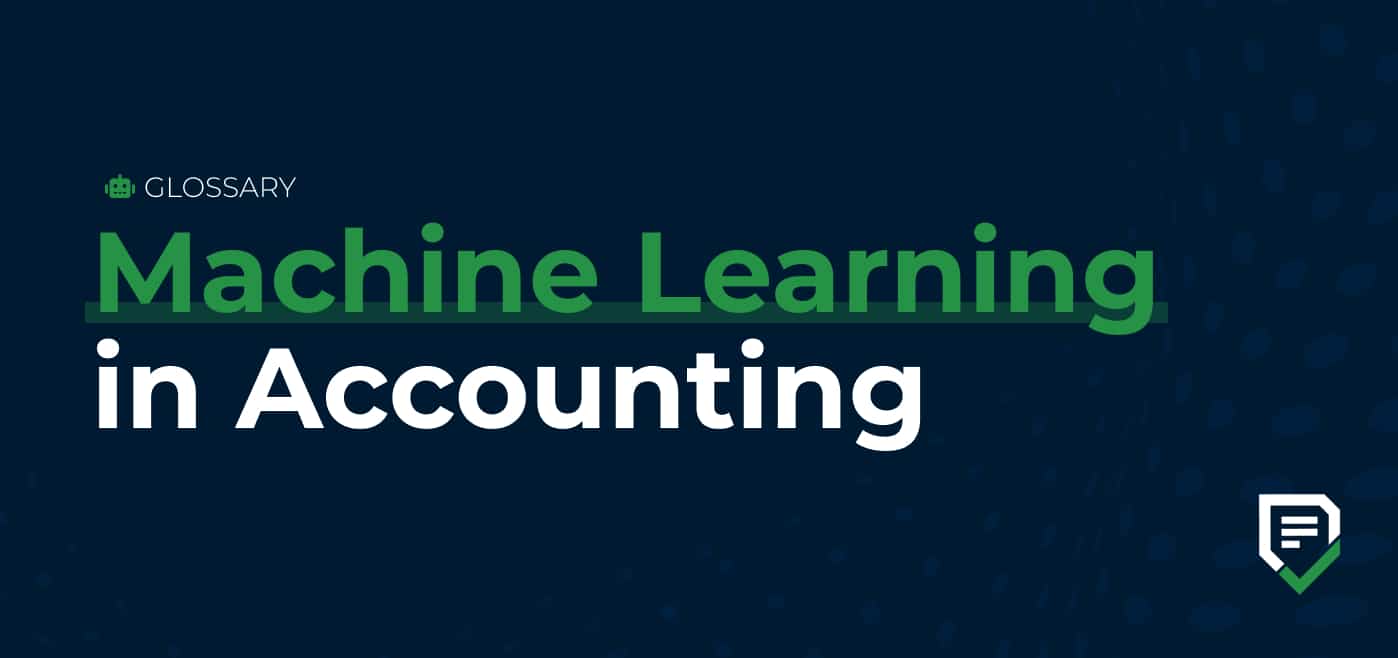The accounting industry has come a long way from stacks of paper ledgers and manual calculations. Today, advanced technologies like artificial intelligence (AI) and machine learning are at the heart of financial management, helping to streamline tasks, increase efficiency, and boost productivity.
By leveraging ML-powered tools, you can automate routine processes, reduce errors, and gain deeper insights from financial data.
What is Machine Learning (ML) in Accounting?
Machine learning in accounting refers to artificial intelligence algorithms that enable systems to learn from and make predictions or decisions based on data. ML algorithms can analyze historical financial data to identify patterns, trends, and anomalies that are not easily detectable through traditional methods. The more data the system processes, the better it recognizes patterns and makes accurate predictions.
The Importance of Machine Learning in the Accounting Industry
Machine learning is a powerful tool for accounting firms. By harnessing its power, you can streamline processes, enhance decision-making, and improve client interactions. This technology empowers you to perform complex data analysis, derive actionable insights, and help clients make more informed decisions.
As the demand for data-driven insights surges, understanding how to leverage machine learning will be essential in scaling your firm.
Machine Learning Use Cases in Accounting
ML has many potential applications in accounting. Here are some of its most noteworthy use cases.
1. Automate Repetitive Tasks
Accounting involves recurring, time-consuming tasks like data entry, invoice processing, and bank reconciliations. Machine learning tools can automate these workflows to improve accuracy, increase efficiency, and free up time to work on more profitable tasks.
For example, AI-powered tools can extract data from invoices, categorize transactions, and match them to corresponding records, significantly cutting down processing time.
2. Fraud Detection
Fraud is a costly and persistent challenge for businesses worldwide. According to a global study by the Association of Certified Fraud Examiners (ACFE), organizations lose an estimated 5% of their annual revenue to fraudulent activities. Relying on outdated, rule-based fraud detection systems contributes to this loss.
In contrast, machine learning models can analyze past transaction data to identify unusual patterns and anomalies that may indicate fraud.
These systems can also flag suspicious activities in real time, helping to detect fraudulent expense claims, duplicate payments, or unauthorized transactions.
3. Financial Forecasting
Predicting revenue, expenses, and cash flow trends is crucial for strategic planning. ML algorithms can analyze historical data to identify key financial drivers and provide more accurate forecasts. As a result, you can help clients make informed decisions about budgeting, investments, and risk management.
4. Tax Compliance
Machine learning helps streamline the tax compliance process. It can automate tax calculations, flag inconsistencies, suggest deductions, and guarantee regulatory compliance.
5. Personalized Financial Insights
With machine learning, you can go beyond traditional number-crunching and offer data-driven advisory services.
AI-driven insights can help to identify cost-saving opportunities, optimize financial strategies, and provide tailored recommendations to clients. This increases your firm’s value and gives you a competitive edge.
6. Expense and Invoice Management
ML-powered tools can automate expense tracking by scanning receipts, categorizing expenses, and detecting policy violations. Similarly, these intelligent systems can identify duplicate invoices, predict payment delays, and suggest optimal payment schedules to improve cash flow.
Advantages of ML
Let’s examine some benefits of leveraging machine learning in your accounting practice.
- Increased Efficiency: Automation reduces the time and effort required for routine accounting tasks.
- Improved Accuracy: ML algorithms can reduce human error, ensuring accurate and reliable financial data.
- Enhanced Insights: ML tools can uncover hidden patterns and trends that provide valuable insights for informed decision-making.
- Cost Savings: Automating manual processes lowers operational costs by reducing labor-intensive work and improving resource allocation.
- Better Cash Flow Management: ML algorithms can analyze large datasets to forecast revenue, expenses, and cash flow trends. This helps predict cash shortages, optimize spending, and improve financial planning.
- Scalability: As your firm grows, ML-driven solutions can handle increasing volumes of data and transactions without compromising efficiency, quality, or accuracy.
- Continuous Learning: Unlike traditional models, ML learns over time. The more data it receives, the more accurate and reliable the output becomes.
How to Implement Machine Learning in Your Firm
Identify Pain Points
The primary goal of leveraging ML is to eliminate bottlenecks and reduce manual work. As such, start by identifying the most time-consuming and error-prone tasks, such as bank reconciliations, fraud detection, or tax compliance. This assessment will help you determine where ML can be most beneficial.
Establish Clear Objectives
Set specific goals for integrating ML technology into your firm. Whether your goals are to improve efficiency, reduce errors, or provide better client insights, having clear objectives will guide your efforts.
Research Suitable ML-Powered Tools
Look for AI-driven platforms that align with your firm’s needs. Ensure you choose user-friendly tools with excellent vendor support, scalability, and integration capabilities.

Sam S., CPA
Brianna Goodman
Angela Brewer
Build Your Team’s AI Knowledge and Skills
While AI and machine learning can automate routine accounting tasks, human expertise remains essential. You need skilled professionals to interpret AI-driven insights, ensure compliance, and provide strategic financial advice.
That’s why upskilling your team is crucial. Provide ongoing training through workshops, certifications, and hands-on experience to help them effectively leverage machine learning technology.
Develop Data Governance Policies
Establish data governance policies to maintain quality, security, and regulatory compliance. This will help build trust and protect sensitive client information.
Start Small and Scale Gradually
Implementing machine learning in your firm doesn’t have to be overwhelming. You can start with a single use case, such as automating data entry or invoice processing. Then, expand to other areas like audit automation, compliance checks, or risk management.
Monitor Performance
To measure the success of your AI efforts, evaluate the performance of your machine learning models. Track key metrics and gather feedback from users to identify areas for improvement.
Challenges of Implementing ML in Accounting
While machine learning is revolutionizing accounting, its adoption comes with challenges that firms must navigate. Here are some key hurdles:
1. Data Quality and Availability
ML models use large volumes of clean, structured data to function effectively. However, many accounting firms struggle with inconsistent, incomplete, or unstructured financial data, leading to inaccurate predictions and unreliable insights.
2. High Implementation Costs
Adopting ML-powered tools requires significant upfront software, infrastructure, and training investments. Small and midsize firms may find it challenging to justify these costs, especially if they lack the resources to integrate ML effectively into their workflows.
3. Regulatory and Compliance Challenges
The accounting industry operates under strict regulations, and ML-driven decisions must comply with financial reporting standards, tax laws, and audit requirements. Since AI models evolve and learn over time, ensuring transparency and accountability in decision-making is a primary concern.
4. Cybersecurity and Data Privacy Risks
ML systems require access to sensitive financial data, making them a prime target for cyber threats. Firms must prioritize data security, encryption, and regulatory compliance such as GDPR and SOX to protect client information.
5. Lack of Skilled Talent
Integrating ML into accounting workflows requires professionals who understand AI and finance. However, many accounting firms lack in-house expertise, making building, managing, and optimising ML solutions difficult.
What Does the Future Hold for Machine Learning and Accounting?
Hyperautomation & Intelligent Process Automation (IPA)
ML will automate increasingly complex accounting processes beyond simple tasks to include intelligent decision-making and adaptive workflows. IPA, which combines ML with robotic process automation (RPA) and other technologies, will become more prevalent, leading to significant efficiency gains, reduced costs, and improved accuracy.
Blockchain-Enabled AI Auditing
The convergence of blockchain and ML will enable smart contract audits where AI analyzes blockchain-based financial transactions. This combination would create immutable audit trails, with early use cases emerging in real-time cryptocurrency transaction audits. The technology promises unprecedented transparency and reliability in financial auditing.
Advanced Fraud Detection and Prevention
ML algorithms will become even more sophisticated in detecting and preventing fraud, identifying subtle patterns and anomalies that are difficult for humans to spot. This will strengthen financial security and reduce losses due to fraudulent activities.
Predictive Analytics Maturity
ML will move beyond forecasting to provide prescriptive insights, recommending specific actions to optimize financial performance and mitigate risks. This will empower accountants to make more proactive and data-driven strategic decisions.
AI-Driven Continuous Accounting
ML systems will enable a shift from periodic to real-time financial closing, updating financial statements instantaneously. This transformation will eliminate the traditional “close the books” process, providing stakeholders with current information.
Conclusion
Machine learning is no longer a buzzword; it’s rapidly transforming the accounting industry. By automating repetitive tasks, improving accuracy, enhancing fraud detection, and providing valuable financial insights, ML enables you to focus on higher-value services and client relationships.
Use Financial Cents to automate your accounting workflows, improve efficiency, and scale your firm.




